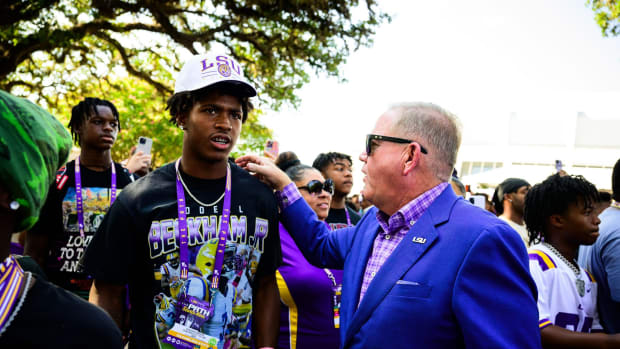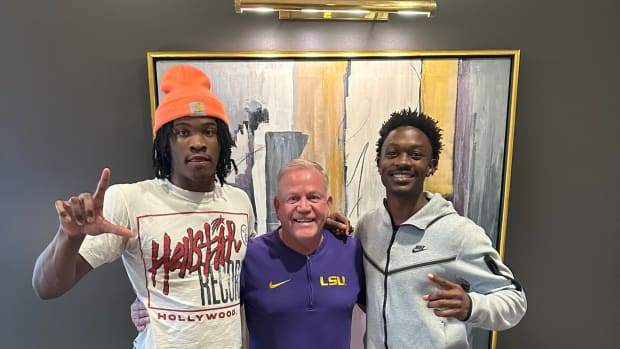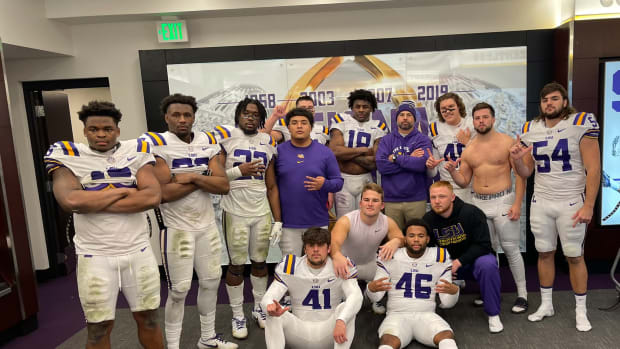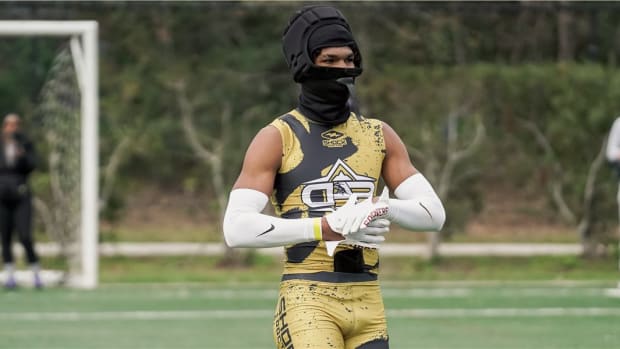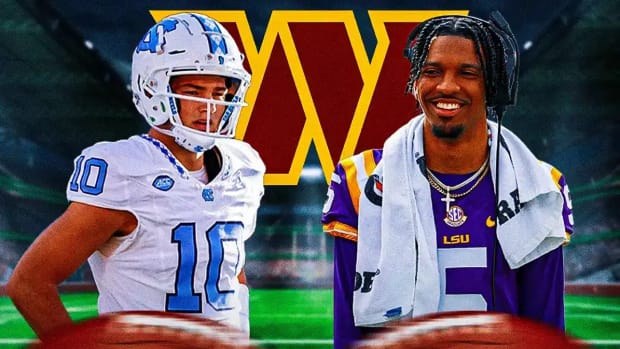What Does 2021 Offensive Tackle Commit Garrett Dellinger Bring to LSU Football?
LSU fans should be excited about Garrett Dellinger joining the LSU fold. He’s one of the class of 2021’s most talented offensive lineman and his commitment impacts LSU in multiple ways.
First and foremost, the LSU coaching staff and fanbase should be happy because Dellinger can flat out play football. Which specific ways does the 6-foot-6, 290-pound, Clarkston (Mich.) High School standout impact the Tigers?
He’s just one player, but Dellinger changes the LSU recruiting class in multiple ways. Below are four areas impacted by Dellinger joining the LSU commitment list.
The Dynamics of Dellinger’s Commitment
Bringing in Dellinger means another top-100 level recruit, which attracts other top-notch prospects, and helps keep LSU as one of the hottest names amongst recruits across the country. The two go hand-in-hand.
There’s no question other top prospects will like the fact that Dellinger just joined the LSU recruiting class. Further, he should really help with offensive skill position recruiting. Which players would not want Dellinger blocking for them?
That’s a no-brainer. He’s one of the top offensive lineman in the country and any talented skill position player should be happy about it. That’s also true of the LSU skill position recruits from the class of 2020. With his Dellinger’s commitment LSU brings in its highest ranked offensive line prospect since 2013, when Ethan Pocic joined the program.
Scholarship Allotment
Getting into the basics of LSU’s offensive line scholarship situation, the Tigers signed three offensive linemen last year. That 2020 group was really good, but it’s a smaller class, in terms of numbers. That’s likely to change this year.
Look for LSU to add another tackle. It could be two offensive tackles if the right player wants to join the LSU program, but it would really need to be a great talent for LSU to sign three offensive tackles.
Look for coach Ed Orgeron and his staff to sign two more interior offensive linemen this year. Balance in position numbers helps keep a talented roster such as LSU in a place of power. As long as opposing teams cannot pick on one specific position group, LSU’s overall speed and athleticism will be hard to stop, just like always.
With all of the different possibilities, it really makes one think about the timing of when recruits want to make decisions, in addition to the talent they already possess. That’s one of many reasons why offensive line recruiting needed the big boost with Dellinger’s commitment. One down, at least three more to go, along the offensive line.
Here’s a look at Dellinger’s junior film:
Who’s Next?
Dellinger’s commitment applies pressure to other top offensive tackle targets. LSU will likely only take one more offensive tackle for the class of 2020, barring something unforeseen, i.e. prospect too good to pass up, or an injury or transfer to a current member of the LSU offensive line.
Which offensive tackle prospects will prove to be very interested in attending LSU? That scenario could play out in short order. It’s a game of Russian roulette for any offensive tackle that wants to be a Tiger, yet wants to take visits before making a verbal commitment. How long will there only be one offensive tackle committed to LSU?
These types of scenarios are what make following recruiting so much fun. All the subtle subplots come into play. One player to watch is five-star tackle Tristan Leigh, who is thought to seriously be considering the Tigers, along with Clemson and Oklahoma.
Offensive Line Flexibility
While Dellinger is a bona fide offensive tackle, he’s also just a really good football player. Down the line, if Orgeron and his staff wanted to place Dellinger at offensive guard, he’s definitely capable.
Dellinger can be a technician, and that’s why he’s likely to play offensive tackle. Conversely, he’s still a powerful young man that’s only going to get stronger in LSU’s strength and conditioning program.
Thus, Dellinger can play along the interior against those big-bodied nose guards from Alabama or Georgia, or the talented defensive tackles he would see from Auburn and Florida. Considering how well the entire SEC West recruits defensive tackles, that’s something to consider as well.
Flexibility helps, especially along the offensive line. Again, Dellinger is probably best suited to play offensive tackle, but down the line, his overall football talent simply allows the LSU coaching staff a great deal of different lineup combinations.
Overall, Dellinger’s commitment is big news for LSU. He’s a really good player and fills a position of need.

